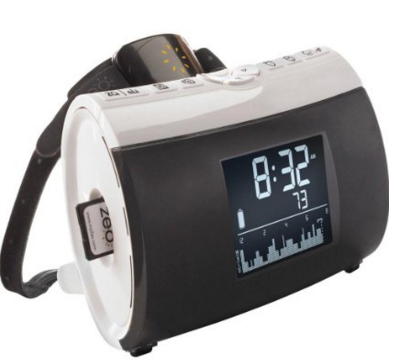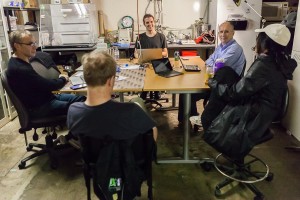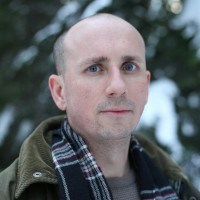Project: DIY OpenEEG/OpenBCI
Several years ago my friend Derek (of Biospace.ca) loaned me his Zeo Sleep Manager and I blogged the experience. You put on the headband at night, and it would measure in 5 minute increments if you were awake, in REM sleep, light sleep, or deep sleep. It would show the results on the display, as well as store them on an SD card. If you wanted, you could upload it to the company website and they would add very pretty graphs and make recommendations to improve your sleep. You could also take the sd card data yourself with very little work and graph it locally on your computer, so the data stays private, which is what I did.
 My Zeo Sleep Manager (sadly now out of business)
My Zeo Sleep Manager (sadly now out of business)
This created a lot of learning, and interesting self-research. I learned that we typically sleep in in several sleep cycles throughout the night. I learned that I didn't have any deep sleep in my first few days, just REM and light sleep.
Derek also loaned me the book The Head Trip - Adventures on the Wheel of Consciousness which talks about the 7 states of consciousness our minds are ever in. I highly recommend if you're interested in the subject.
As I read more about sleep, and learned that deep sleep involves a lot of physical cell work, REM is more mental/memory related. I worked out excessively the next dat and that night I slept for ~45 minutes of deep sleep. I had a party one night where I drank excessively "for science", to see if it's true that I would sleep less well when inebriated. I tried many different things while I had this device, and learned a lot about my sleep I had no idea about before. Sadly, I had to return the clock, and the company which made the alarm clock has since went under.
Considering how important sleep is to our lives, it's unfortunate we all don't spend a lot more time understanding our own sleep patterns. While there are some phone apps that record your breathing and use the accelerometer to measure your sleep, I want something with more accuracy, and more privacy.
Enter the OpenEEG project, which discusses hardware and software neurofeedback solutions. I've been wanting to pursue this for years, but haven't prioritized on it yet.
Last night, I went to the Open Science Network (Vancouver bio-tech community lab) meetup, "The Concept of Open Medicine" where I brought this story up, and several people seem interested, from a few different perspectives.
 Open Science Network Vancouver - Concept of Open Medicine meetup
Open Science Network Vancouver - Concept of Open Medicine meetup
We're going to start planning out a project this week-end, so if you're interested, I'll put a link at the bottom of this article when we have a time and place confirmed. In the interim, if you have any suggested reading, or ideas, or related links, please add them in the comments below.
I plan on adding a feature to the DIY device that measures audio and light throughout the night as well, to see at which thresholds our sleeping is affected.
3:00am UPDATE: As recommended by Derek, will also check out OpenBCI and Florida Research for sensors.
10:44am UPDATE: We're meeting at 13:00 at Matchstick Coffee at 213 East Georgia on Sunday November 1st if you'd like to join us. [Meetup.com event]
Nov 1 UPDATE: It was a great meeting, we're going to move the discussion to the Ideas Meetings - Vancouver Chapter wiki. Feel free to join us there in the interim, or at the meeting next week at the same time and place.

Leave a comment